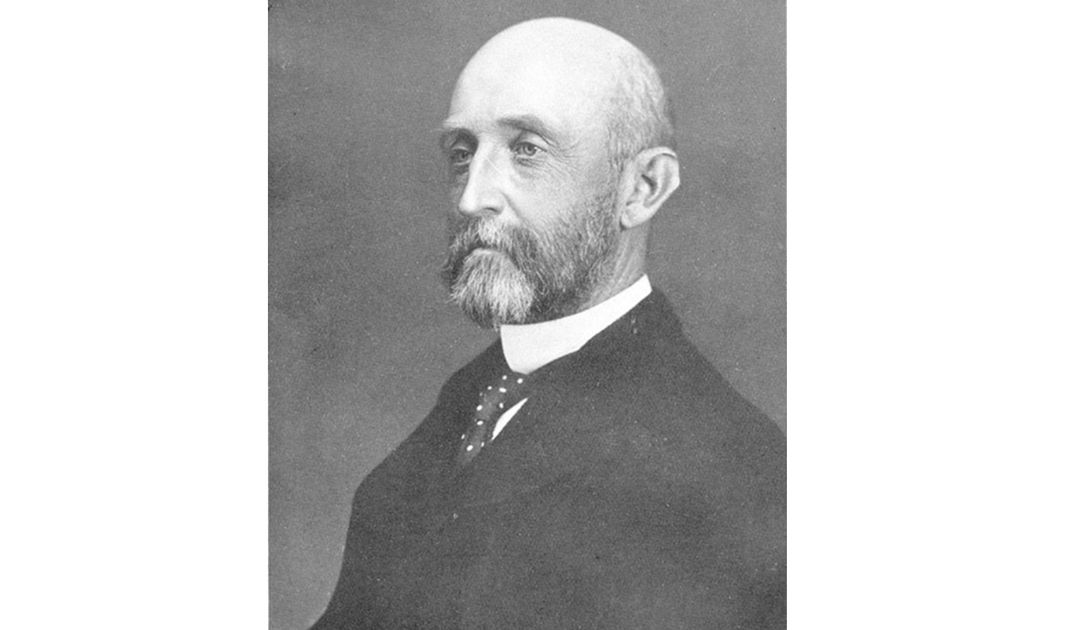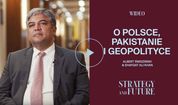Mahan’s Next 100 Years

Alfred T. Mahan (photo: Wikipedia)
Just from looking at his portrait, at that deep stare, we can see that there is a formidable intensity about Alfred T. Mahan – we can see this in his writing as well. At the age of 56, several years after the overnight success of The Influence of Sea Power Upon History: 1660-1783, he sat down to write an incredibly insightful 10,000-word essay which begins with the following words:
“The nineteenth century is about to die, only to rise again in the twentieth. Whence did it come? How far has it gone? Whither is it going? ”
He talks in the next paragraph of “tendencies now dimly discernable, which, if not counteracted, are pregnant of further momentous shifting of the political balances, profoundly affecting the welfare of mankind.” Mahan saw the 19th century as a post-imperial century, a century of scientific and technological progress, a century of peace which was now on the verge of ending in “wars and … rumors of wars in the countries of European civilization”. For America it had been a century of isolation – Mahan predicted that this also would (and should) come to an end.
All of this is not particularly surprising to hear – in hindsight. Mahan’s essay is published in May 1897. The ‘American Century’ essentially begins the following summer with the Spanish-American War. When we talk about Mahan as a ‘prophet’, this is usually what we mean. This is what we know him for.
What’s actually far more interesting (for us today) is not what he has to say about the changing balance of power amongst the nations of the West but about “the stirring of the nations of Oriental civilization” – which, as a sailor, he knew firsthand – and about the differences between the civilisations of the East and the West:
They are running as yet on wholly different lines, springing from conceptions radically different. To bring them into correspondence in that, the most important realm of ideas, there is needed on the one side—or on the other—not growth, but conversion. However far it has wandered, and however short of its pattern it has come, the civilization of modern Europe grew up under the shadow of the Cross, and what is best in it still breathes the spirit of the Crucified. It is to be feared that Eastern thinkers consider it rather an advantage than a detriment that they are appropriating the material progress of Europe unfettered by Christian traditions,—as agnostic countries. But, for the present at least, agnosticism with Christian ages behind it is a very different thing from agnosticism which has never known Christianity.
Even at the close of the nineteenth century, it was clear to Mahan that Western civilisation was heading towards a post-Christian era of agnosticism and that this would be a gradual evolution, “scarcely a question of the twentieth century.” We see the same concerns framed in a very similar way in Martin Scorsese’s ‘Silence’ (2016).
Mahan talks in 1897 of Japan’s “astonishing development” and of post-colonial prospects for India. Both countries would rise up in the twentieth century before fading into the background of world affairs. “Of China,” he says, “we know less…”
…but many observers testify to the immense latent force of the Chinese character. It has shown itself hitherto chiefly in the strength with which it has adhered to stereotyped tradition. But stereotyped traditions have been overthrown already more than once even in this unprogressive people, whose conservatism, due largely to ignorance of better conditions existing in other lands, is closely allied also to the unusual staying powers of the race, to the persistence of purpose, the endurance and the vitality characteristic of its units. To ambition for individual material improvement they are not insensible. The collapse of the Chinese organization in all its branches during the late war with Japan, though greater than was expected, was not unforeseen. It has not altered the fact that the raw material so miserably utilized is, in point of strength, of the best; that it is abundant, racially homogenous, and is multiplying rapidly. Nor with the recent resuscitation of the Turkish army before men’s eyes, can it be thought unlikely that the Chinese may yet obtain the organization by which alone potential force receives adequate military development, the most easily conferred because the simplest in conception. The Japanese have shown great capacity but they met little resistance; and it is easier by far to move and to control an island kingdom of forty millions than a vast continental territory containing near tenfold that number of inhabitants. Comparative slowness of evolution may be predicated, but that which for so long has kept China one, amid many diversities, may be counted upon in the future to ensure a substantial unity of impulse which, combined with its mass, will give tremendous import to any movement common to the whole.
Again, it feels here as if Mahan is speaking not about the then-approaching 20th century but about what would follow on from it. The rise of China, like the West’s evolution towards an era of post-Christian agnosticism, was a complex and inevitably slow-moving phenomenon, then only “dimly discernable”. With the military parade that took place on 1st October 2019 in Beijing to commemorate the 70th anniversary of the establishment of the People’s Republic of China, we were given a much clearer glimpse into the future that Mahan predicted all those years ago.
Autor
Thomas Riley
Thomas Riley runs the Flows and Frictions podcast for Strategy&Future. Originally from Manchester, England, he has been living and teaching English in Katowice since 2009.






Trwa ładowanie...